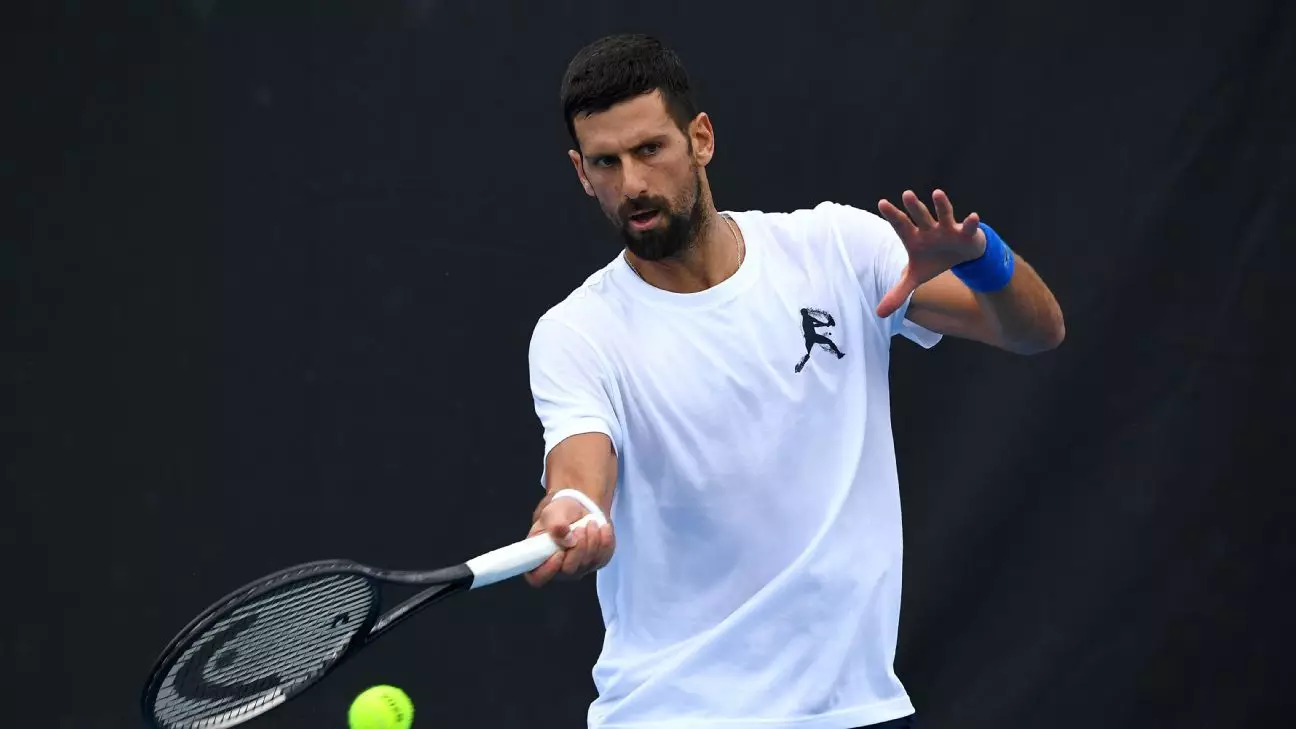The Shadows of Doping in Tennis Djokovic’s Stand Amid Controversy
In the thrilling and fast-paced world of professional tennis, few things can impact a player’s career as profoundly as doping scandals. With every serve and volley scrutinized under a global spotlight, both players and fans find themselves navigating the murky waters of performance-enhancing drugs and maintaining the integrity of competition. Recently, Novak Djokovic, one of the sport’s most celebrated figures, has taken a bold stand, criticizing perceived inconsistencies in how tennis authorities handle doping cases. His vocal stance is a call for greater transparency and fairness.
As Djokovic gears up for his eagerly awaited return to the court, he’s been candid about his frustrations with the handling of doping cases, specifically pointing to rising star Jannik Sinner. His concerns underscore a broader unease among players about the inconsistent enforcement of anti-doping policies. During a press conference in Brisbane, Djokovic expressed feeling “kept in the dark” regarding significant developments in doping allegations. This highlights an ongoing issue in tennis: key topics like doping are often enveloped in ambiguity and secrecy. His call for transparency mirrors a widespread desire among athletes for accountability from governing bodies that are frequently criticized for their opacity.
Key Takeaways
- Djokovic criticizes inconsistencies in handling doping cases.
- Transparency is crucial for maintaining the sport’s integrity.
- Consistency in policy application is vital for fair competition.
The Double Standards within the System
Djokovic’s comments bring attention to what many perceive as double standards in how the sport addresses doping violations. He pointed out the differing outcomes faced by players, highlighting frustrations among those with less influence or lower rankings who endure prolonged waits for resolution. In tennis, where a reputation can be ruined overnight by a doping allegation, inconsistent handling raises legitimate concerns. Why does Sinner’s case differ from others facing long suspensions without positive tests? Such disparities threaten not just individuals but also the credibility of tennis itself.

The International Tennis Integrity Agency (ITIA) leads the charge in managing doping cases; however, it has faced criticism for its lack of transparency. Djokovic’s remarks reflect players’ frustrations when witnessing disparities in decision-making and communication. The experiences of players like Iga Swiatek, who accepted a suspension after testing positive, contrasted with Sinner’s case, further highlight claims that certain figures may receive preferential treatment. This disconnect underscores systemic flaws within tennis governance, leaving athletes uncertain about their futures while the community calls for clearer guidelines ensuring fairness.
Despite these controversies swirling around him, Djokovic remains focused on his pursuit of excellence on the court, particularly as he eyes a record-breaking 25th Grand Slam title at the upcoming Australian Open. His dedication to enhancing his game is evident through his collaboration with former rival Andy Murray—a partnership that embodies unity amidst competitive pressures. This melding of rivals’ experiences showcases an evolving recognition that advancing their athletic capabilities requires mutual support. Djokovic’s ability to compartmentalize and concentrate on personal objectives amidst external chaos speaks volumes about his resilience.
Final Thoughts
As tennis continues to wrestle with issues surrounding doping, Novak Djokovic’s outspoken frustrations fuel an ongoing dialogue advocating for reform and accountability in professional sports. His push for transparency and fairness resonates not only with fellow players but also serves as a crucial reminder of governing bodies’ responsibilities to uphold the game’s integrity. Moving forward, it is essential for authorities to reassess their protocols and practices to ensure equitable treatment of all players—ultimately shaping tennis’s legacy for future generations. Djokovic’s journey reflects the sport’s broader narrative: a quest for clarity amid a landscape often shrouded by suspicion and inconsistency.
tennis
doping
Novak Djokovic
sports integrity


Leave a Reply